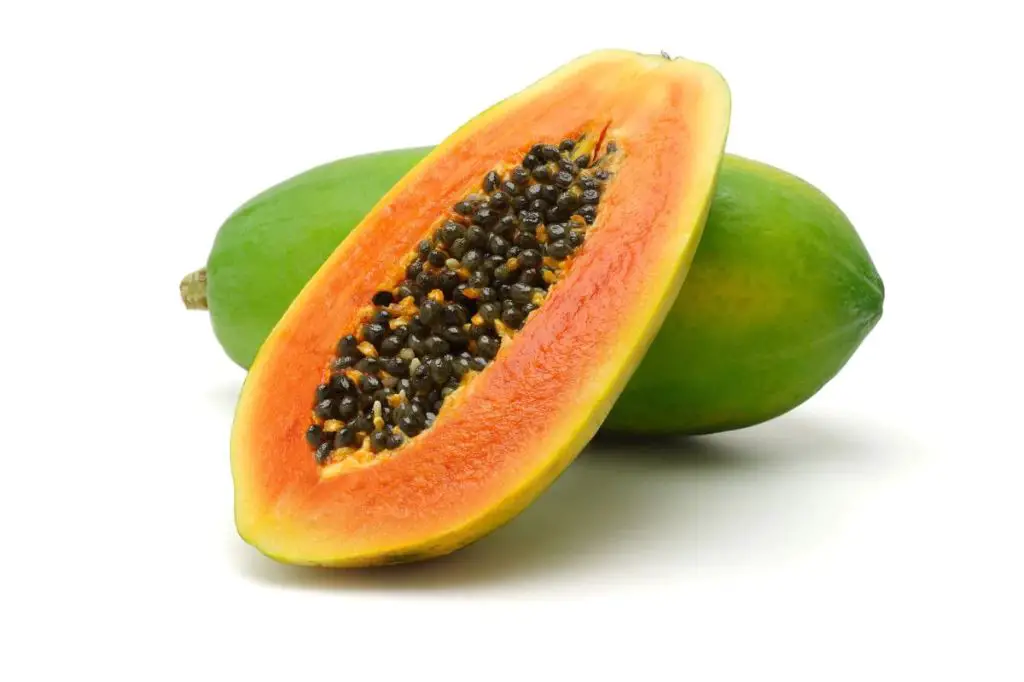Introduction
There are many valid reasons a dog owner may want to prevent an unwanted pregnancy. Unplanned litters contribute to pet overpopulation and flooded animal shelters. Additionally, pregnancy and giving birth can be taxing on a female dog’s health, especially if she is very young or old. While spaying is the only sure way to prevent pregnancy long-term, some owners may want to avoid surgery or delay it until after their dog’s first heat cycle. In these cases, natural alternatives may be considered for preventing or terminating an unexpected pregnancy in the short-term.
However, dog owners should fully understand the risks and moral considerations before attempting to end a dog’s pregnancy without professional veterinary guidance. This article outlines various home remedies that some owners have used, but does not endorse or recommend any particular method. As always, consulting your vet first is strongly advised.
Understand the Risks
Stopping a dog’s pregnancy or preventing pregnancy from naturally completing can involve health risks that owners should consider. Some potential risks include:

- Infection – Interfering with pregnancy could introduce bacteria leading to infection of the uterus or surrounding tissues. Signs of infection may include fever, vomiting, diarrhea, lethargy, and abnormal vaginal discharge.
- Uterine disease – The uterus may not properly return to normal after pregnancy is interrupted, which could cause issues like uterine cancer down the line. Scar tissue or abnormal tissue growth may develop.
- Hormonal issues – Preventing progesterone levels from naturally declining post-pregnancy can disrupt the dog’s hormonal balance and lead to conditions like pyometra.
- Complications with future pregnancies – Damage to the uterine lining or anatomy could make future successful pregnancies difficult or impossible.
- Psychological stress – Terminating a pregnancy could cause psychological stress, anxiety, depression and other behavioral changes in some dogs.
While home remedies may seem like an easy solution, owners should carefully weigh these potential risks before attempting to terminate their dog’s pregnancy. Consulting a veterinarian can help fully understand the safest options.
When to Use Home Remedies
Home remedies can be an option to stop a dog’s pregnancy early on, typically during the first 4-6 weeks. However, they should only be considered in certain situations:
- If it’s very early in the pregnancy and you have just discovered it
- If the pregnancy was accidental and unintended
- If your dog has had many litters and continued breeding would be taxing on her health
- If you do not have the resources or ability to properly care for more puppies
Home remedies become less viable as the pregnancy progresses. They have the highest chance of working during the first 3-4 weeks. After 5-6 weeks into the pregnancy, the fetuses are more developed and home remedies will likely be ineffective. At that point, you should absolutely seek veterinary guidance on next steps.
You should also always consult your vet first before attempting any home remedies for termination. Your vet can examine your dog, confirm the pregnancy, and advise you on the safest options for her health. Never attempt to forcefully terminate a pregnancy without veterinary supervision.
Herbal Remedies
Some herbal remedies have been used for centuries to terminate dog pregnancies. However, many of these herbs have not been thoroughly studied for safety and efficacy. Consulting with a veterinarian before using herbal remedies is strongly recommended.

Parsley is one herbal remedy believed to help end dog pregnancies. The herb contains apiol and myristicin, which may stimulate uterine contractions. However, research on parsley for dog pregnancy termination is limited. Using fresh parsley carries risks of toxicity. It’s important to consult a vet on proper dosing.
Angelica sinensis, also known as dong quai, is another herb used in traditional medicine for abortion. However, there is insufficient evidence on its safety and effectiveness for dogs. Dong quai may interact with other herbs and medications. It should not be used without veterinary guidance.
Other herbs sometimes recommended for ending dog pregnancy include mugwort, pennyroyal, blue cohosh, and wild yam. But these can be toxic or dangerous for dogs. There is very little veterinary research backing their use. It’s best to avoid these herbal remedies for dog pregnancy.
In summary, while some herbs show promise for stopping dog pregnancy, they pose risks without proper veterinary guidance. More research is needed before they can be recommended as safe, effective home remedies.
Vitamins/Minerals
Certain vitamins and minerals may help promote the health of a pregnant dog and developing puppies. However, you should always consult your veterinarian before giving any supplements, as improper dosages can lead to toxicity.
Some potential supplements to discuss with your vet include:
- Vitamin C – Helps support collagen production and antioxidant status. Use an esterified form and avoid high doses.
- Calcium – Needed for fetal skeletal development, but excess calcium can harm puppies. Use caution and monitor levels.
- Magnesium – Supports bone health and enzyme function. Have magnesium levels tested before supplementing.
Work closely with your veterinarian to determine if your dog needs any vitamin or mineral supplementation during pregnancy. Get blood tests done to identify any deficiencies. Only use high-quality supplements with the proper dosing for your dog’s needs.
Other Natural Remedies
In addition to herbs and supplements, there are some other natural options that may help terminate a dog’s pregnancy. However, it’s important to consult your veterinarian before trying these alternatives.
One option is papaya. Unripe papaya contains the compound papain, which may have contraceptive effects. Green papaya seeds or juice could potentially induce miscarriage when given early in pregnancy. However, papaya can be toxic in high amounts, so you must be very careful with dosing.

Blue or black cohosh is another natural alternative used in herbal medicine. These two herbs contain compounds that may stimulate uterine contractions and prompt miscarriage. However, cohosh can have concerning side effects like liver damage. It also requires very precise dosing.
While these natural remedies show some promise, they need a lot more research. It’s best to use extreme caution with any home treatments for dog pregnancy. Focus instead on preventing future accidental litters through spaying or carefully managing intact dogs.
Lifestyle Adjustments
Making some changes to your dog’s lifestyle during pregnancy can help keep her comfortable and reduce complications. Here are some tips:
- Feed a high-quality puppy food to support the growing fetuses. Gradually transition to this diet over 7-10 days.
- Avoid strenuous exercise, especially jumping, running, and rough play. Gentle walks are still encouraged.
- Provide a quiet, comfortable area for rest and sleep. This gives momma dog a safe space during pregnancy.
- Massage pregnant bellies gently to promote blood flow and relax muscles. Always be gentle and stop if she seems uncomfortable.
- Brush frequently to remove shedding fur. Pregnancy hormones can increase shedding.
- Avoid stressors like loud noises, unfamiliar guests, or changes in routine. Hormones make dogs more sensitive during pregnancy.
- Prepare a whelping area using nesting boxes and potty pads as her due date nears.
With some simple lifestyle adjustments, you can keep your pregnant pooch relaxed and content throughout her pregnancy.
When to Seek Veterinary Care
While home remedies can be effective for stopping dog pregnancies, there are some situations where it is important to seek veterinary care instead:
If your dog is more than 4-5 weeks into the pregnancy, home remedies likely will not work and you’ll need medications or procedures from a vet to end the pregnancy. Seeking prompt vet care gives you the most options.
If your dog has health issues or complications, home remedies may be risky. Your vet can advise the safest options for ending the pregnancy based on your dog’s health.
If home remedies don’t seem to be working after 2-3 weeks, seeking veterinary care is recommended. Your vet can provide stronger medications or procedures with higher chances of successfully ending the pregnancy.
If you’re unsure how far along your dog is in the pregnancy timeline, your vet can perform exams and testing to determine the best course of action based on the stage of pregnancy.
In an emergency situation, like if your dog is in distress, immediate vet care is needed. Don’t attempt to use home remedies in an emergency.
Seeking professional vet care provides the highest chance of safely ending a dog pregnancy while protecting your dog’s health and wellbeing. If home remedies aren’t working or if you have any concerns, contact your vet right away.
Preventing Future Litters
While home remedies can help terminate an accidental pregnancy, the only guaranteed way to prevent unwanted dog pregnancies in the future is to have your dog spayed. Spaying refers to the surgical removal of the reproductive organs in female dogs – the uterus and ovaries. It is a routine procedure done at most veterinary clinics.
There are many benefits to having your dog spayed:
- Eliminates the risk of accidental pregnancies.
- Prevents uterine infections and breast tumors which are common in unspayed older dogs.
- Reduces undesirable behaviors associated with the heat cycle like nervousness, aggression, and escape attempts.
- Controls the pet population and reduces the number of unwanted puppies that end up in shelters.

The ideal age to spay depends on the breed and size of your dog. Most vets recommend spaying before the first heat cycle, generally around 5-6 months old. Larger breed dogs may benefit from waiting until 12-18 months to allow proper bone growth. Discuss the ideal timing with your veterinarian.
While spaying has upfront costs, it saves money over your dog’s lifetime by avoiding expenses associated with heat cycles, pregnancies, and health issues. There are often low-cost spay/neuter clinics in most communities. Overall, spaying is a responsible way to ensure your female dog lives a healthy and happy life.
Summary
Recapping the key points, home remedies can help stop dog pregnancy in some cases but should not replace professional veterinary care and advice. Herbal supplements like angelica, pennyroyal, and blue cohosh may induce abortion but can have serious risks and side effects. Vitamins like vitamin C and minerals like calcium may help, but dosages and safety must be carefully researched. Other remedies like diet changes, moderate exercise, acupressure, and cold compresses could provide modest benefits with minimal risks. However, the window of time to stop pregnancy is very short and so effectiveness is limited. Most importantly, owners should take steps to prevent unwanted litters through spaying, neutering, and responsible breeding practices.
While home remedies may seem appealing, they do not guarantee results and some can endanger the mother’s health. It’s critical to consult a vet first before attempting any home treatments. With professional guidance, owners can explore if gentle home options may be appropriate alongside standard medical care. Stopping an unhealthy or unsafe pregnancy protects dogs and puppies alike. But looking ahead, responsible pet ownership means ensuring dogs are supervised, separated during heat cycles, and spayed or neutered if not intended for ethical breeding.